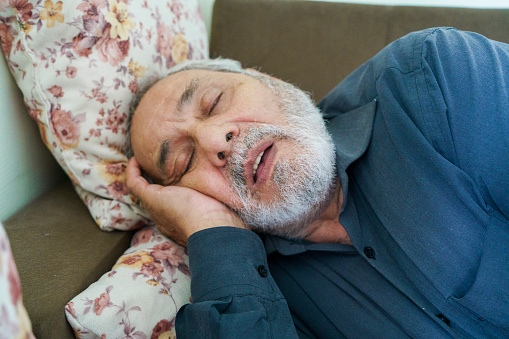Snoring can be a huge distraction from a person’s restful sleep. Thankfully, there are plenty of ways to deal with this condition. Some methods include using a snore-reducing pillow or using an oral appliance. In addition, there are also various medical options available, including surgery. If you’re worried that snoring is affecting your health, you can consult your primary care physician or otolaryngologist to find out more about your options.
The first step in treating snoring is to find out why you’re snoring. Snoring is often caused by a blockage in your airways. This may be a symptom of a more serious medical condition called sleep apnea. If you’re concerned that you might have sleep apnea, you’ll need to consult with a doctor.
How Does Snoring Affect Sleep?
Snoring is common when the tissues in the throat relax and partially block the airway. These tissues then vibrate and create the sound you hear. This sound will vary according to the person’s anatomy and lifestyle. Snoring is a possible sign of sleep apnea if it occurs more than once every hour.
Snoring is a problem that affects most people at some point in their life. There are many causes of snoring, including a faulty sleeping position, an underlying medical condition, and alcohol consumption. Fortunately, there are many simple, inexpensive, and effective ways to minimize your snoring.
Snoring may also be an early warning sign of cardiovascular disease. Studies have shown that people who snore are at a greater risk of developing thickened carotid arteries, which could lead to heart problems. Additionally, the vibrations that occur while snoring can cause inflammation of the arteries, which has been linked to cardiovascular diseases.
Home Remedies For Preventing Snoring
If you suffer from snoring, there are several things you can do to prevent it. Some home remedies include avoiding alcohol and smoking, sleeping on your side, and getting an extra pillow. It would help if you avoided alcohol as it relaxes your throat muscles, leading to snoring. Therefore, avoid drinking alcohol at least 3 to 4 hours before bed. This will help you sleep better and prevent snoring.
Extra Virgin Olive Oil
Extra virgin olive oil can help people with snoring because it has several beneficial effects on the throat and airways. It is an anti-inflammatory and helps reduce swelling and constriction. It also helps reduce vibrations in the throat and air passages. Regular consumption of olive oil can significantly decrease snoring. This oil has other health benefits, such as glowing skin and healthy hair. It can be taken in small amounts before retiring to sleep.
It has been proven to relieve the symptoms of insomnia and improve the quality of sleep. It also has anti-inflammatory properties that promote the realignment of the sleep health system. Regular intake of good olive oil before retiring will allow you to sleep soundly.
Quitting Smoking
Smoking can increase the chances of snoring, particularly if you’re over 50 or obese. Smoking also causes swollen and inflamed mucous membranes in the nose and throat. These effects can cause snoring and make it difficult to sleep. Many studies have shown that smoking increases the risk of snoring twice as much as nonsmokers.
If you’re a smoker, one of the best snoring treatments is to quit smoking. Smoking can cause your airway to narrow and cause you to snore, so quitting completely is an important step. In addition to preventing snoring, quitting smoking has many other health benefits.
You can also cease eating before bed to avoid snoring. There are many other drawbacks of eating before bed.
Sleeping On Your Side
Sleeping on your side will open up your airways and relax your throat and mouth, preventing you from snoring. Some people who snore often sleep on their backs, which causes their throat muscles to collapse. Using a snoring pillow can help you avoid this situation.
If you can’t sleep on your side, you can attach a tennis ball to your shirt, pajamas, or fanny pack to keep you from rolling over and causing you to snore. This will also help you get into sleeping on your side.
Getting Extra Pillows
While pressure relief does not directly affect snoring, it can greatly improve your comfort. A pressure relief pillow will mold to your head and neck and redistribute your weight to minimize pressure and aches. A good pillow will also help prevent the buildup of pressure in your head and neck.
Changing your sleep position is also helpful if you’re trying to prevent snoring. While it’s not as effective as a pillow, sleeping on your side can open your airways and reduce snoring. While this may be uncomfortable, sleeping on your side can improve your breathing. There are others benefits of sleeping on your side as well. Changing your sleeping position can also help your cervical alignment, which is another important factor in preventing snoring.
Herbal Remedies
To prevent snoring, you may try consuming honey. Honey helps lubricate the linings of the throat, which stops the vibrations that cause snoring. It can be taken orally with water daily. Snoring not only disturbs sleep but can also cause other health problems.
Olive oil is an excellent anti-inflammatory. It reduces swelling in the respiratory passages, which helps ease a sore throat and decrease the vibrations that cause snoring. Other home remedies include chamomile tea or ginger tea.
Using A Facial Steam Bowl
A facial steam bowl before bedtime can help prevent snoring and open the nasal passages. It’s a natural method that can work for people of all ages. It can also help people who suffer from allergies or a stuffy nose. To use a facial steam bowl, fill the bowl with hot water and cover your face with a towel. This method will take five to ten minutes to produce the desired results.
Using a facial steam bowl will unclog blocked nasal passageways and promote skin health. The increased blood flow will help your face look younger. Also, the feeling of warm steam will be soothing. If you are using essential oils, you can use them to make the experience even more relaxing.
Lastly
The severity and frequency of snoring can be different for different people. Light, infrequent snoring doesn’t require medical treatment but can disturb your partner’s sleep. If you snore more than three times a week, it’s called primary snoring, and it can be a symptom of sleep apnea, which can cause serious health problems.


